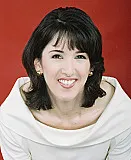Prelude to Passover

Prelude to Passover
Tips for Children at Your Seder Table
Seder, loosely translated, means “order.” But in my house it never quite seemed that way. With 48 guests comprised of 3 generations of relatives and friends, our Seders were more like controlled chaos than an orderly affair. Yet we were always able to finish by midnight. This was because everyone, adults and children alike, knew what was expected of us at the Seder.
Children have always played an integral part of the Passover Seder. During the beginning of the Seder the Four Questions are chanted by the children at the table. The Seder continues with the story of the Four Sons, which is retold so that its meaning can be understood by all who have gathered. And, of course, the Seder meal can not conclude until after the children have found the Afikomen.
The key to a successful Seder with children is advanced preparation. Here are some tips to help your family prepare for Passover:
The Week Before the Seder:
- Have your children help you as you begin to prepare the house for Passover. Use this time together to discuss what Passover is and to share some of your memories of Passover from your childhood.
- Find an age-appropriate book about Passover to read to your children. Talk about your family’s traditions, whether they match or vary from the information in the book. This book can be brought to the Seder for the children to look at and read when they become fidgety.
- Begin reviewing the chanting of the Four Questions. The more often your children practice, the more comfortable they will be when reciting in front of the other Seder guests. Have a back-up plan just in case your child gets cold feet. Usually, help from an older sibling is enough to coax the questions out. So be sure to let older children know they might be pinch hitting.
- If the Seder is not at your house, check in advance with the hostess about logistics such as mealtime and seating arrangements. This information will help you plan ahead. If the meal will be later in the evening, you should make sure your child has a late lunch or snack. For some children, sitting next to a grandparent or an older cousin can be used as a reward for good behavior through the meal.
The Day of the Seder:
- Prepare your children for conversations with adults. Younger children should have short answers to questions such as how old they are, what grade they are in, and their favorite book. Older children should be prepared for conversational questions about what they are learning in school, what activities they are involved in and any upcoming plans. You can encourage children who are shy to become family detectives. They can ask relatives questions about family history. “How are the people in the room are related?” “How did the family come to America?” Or, they can ask questions that will elicit longer answers such as “What is your favorite Passover memory?”
- Remind your children of proper table manners. Review each utensil and its use. Make a game out of it. Have your children practice setting the table with the full setting of flatware. Ask your child what utensil they would choose for a particular food item or course. Doing so will familiarize your children with basic table manners so that they will be more comfortably during the Seder. In anticipation of some ceremonial foods your child might not want to eat, you may want to review what to do with food they do not like.
- Discuss with your children what behavior you expect at the Seder table and why it is important they behave in this manner. You may wish to cover when it is appropriate to be excused from the table, how to help clear the dishes, and topics of conversation.
- Let your children choose what special clothes they will wear to celebrate the holiday. With all of the rules guiding holiday behavior, doing so will allow your children to play a proactive part in the holiday.
- If you will be guests at a Seder, encourage your children to bring a gift. A picture they have created, or a box of candies (Kosher for Passover, of course), are a thoughtful way to thank your hosts.
While not every child will behave impeccably during the entire Seder, it is important to recall that even the Wicked Son plays an important role in the Seder. A bit of planning and preparation can go a long way in making your Seder as orderly and enjoyable as possible.
Jodi R. R. Smith of Mannersmith is a nationally known manners maven. To ask your etiquette emergency question please visit:
The Etiquette Book: A Complete Guide to Modern Manners now available!
Spread the word
Support Us
with your donation
Help us build moments of meaning and connection through
home-based Jewish rituals.
Inspired to create
your own Haggadah?
Make your own Haggadah and share with other Seder lovers around the world
Have an idea
for a clip?
People like you bring their creativity to Haggadot.com when they share their ideas in a clip
Passover Guide
Hosting your first Passover Seder? Not sure what food to serve? Curious to
know more about the holiday? Explore our Passover 101 Guide for answers
to all of your questions.
